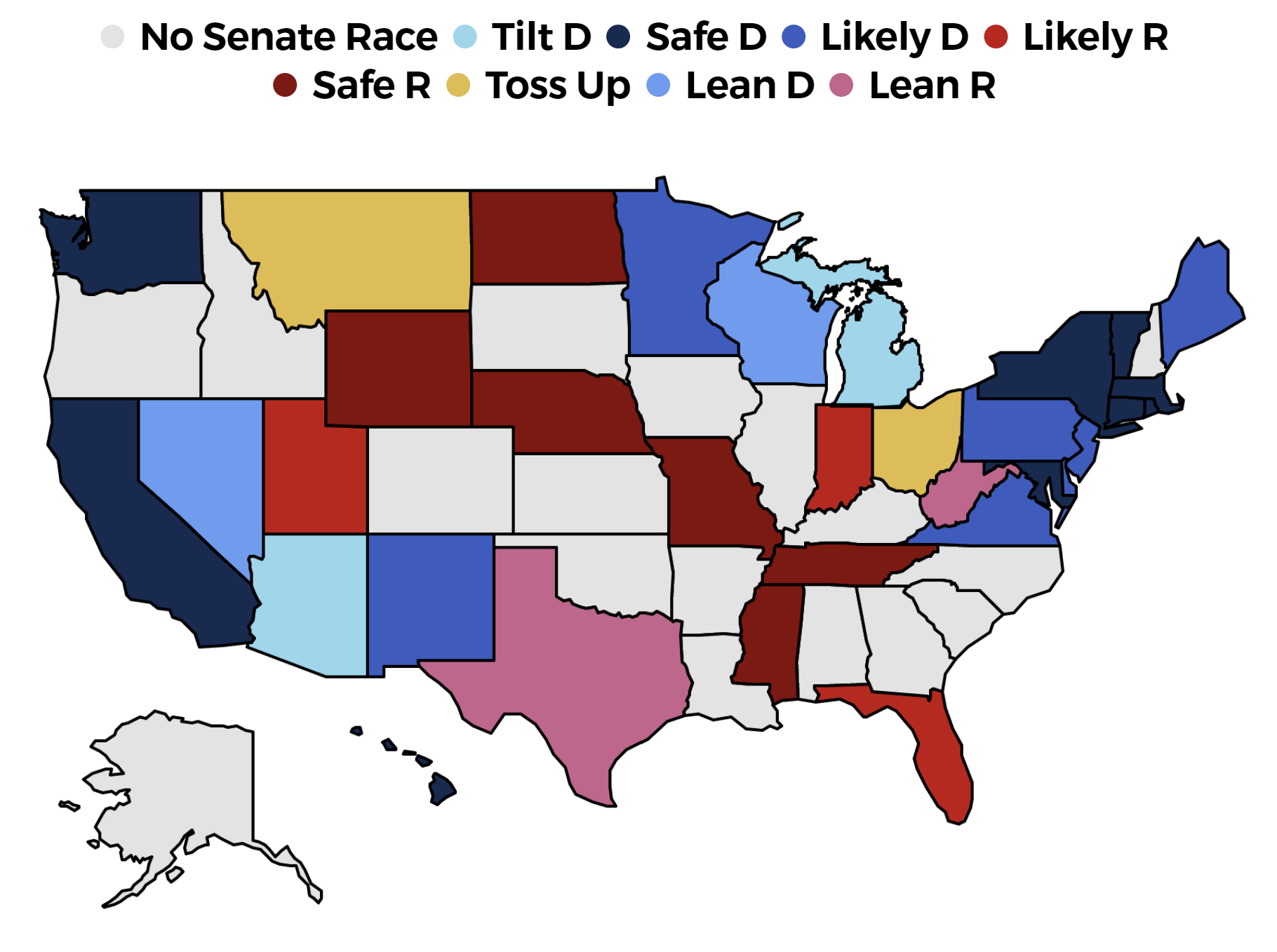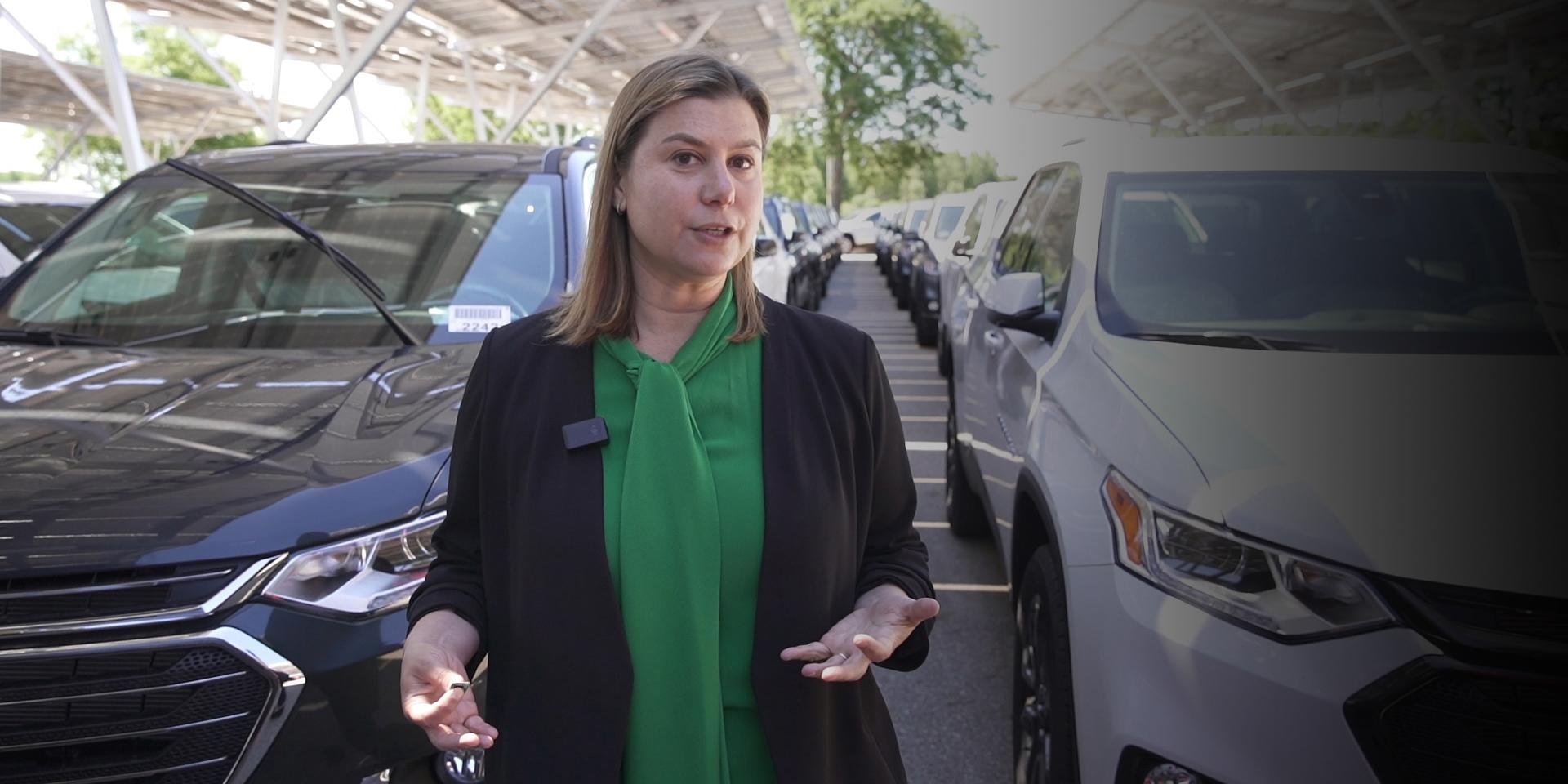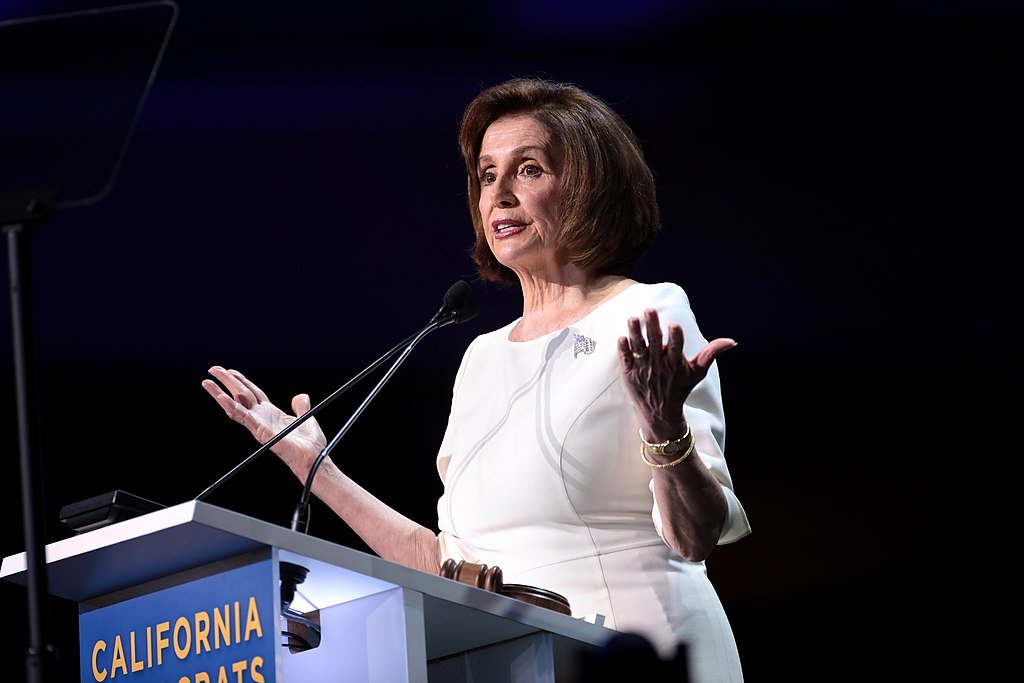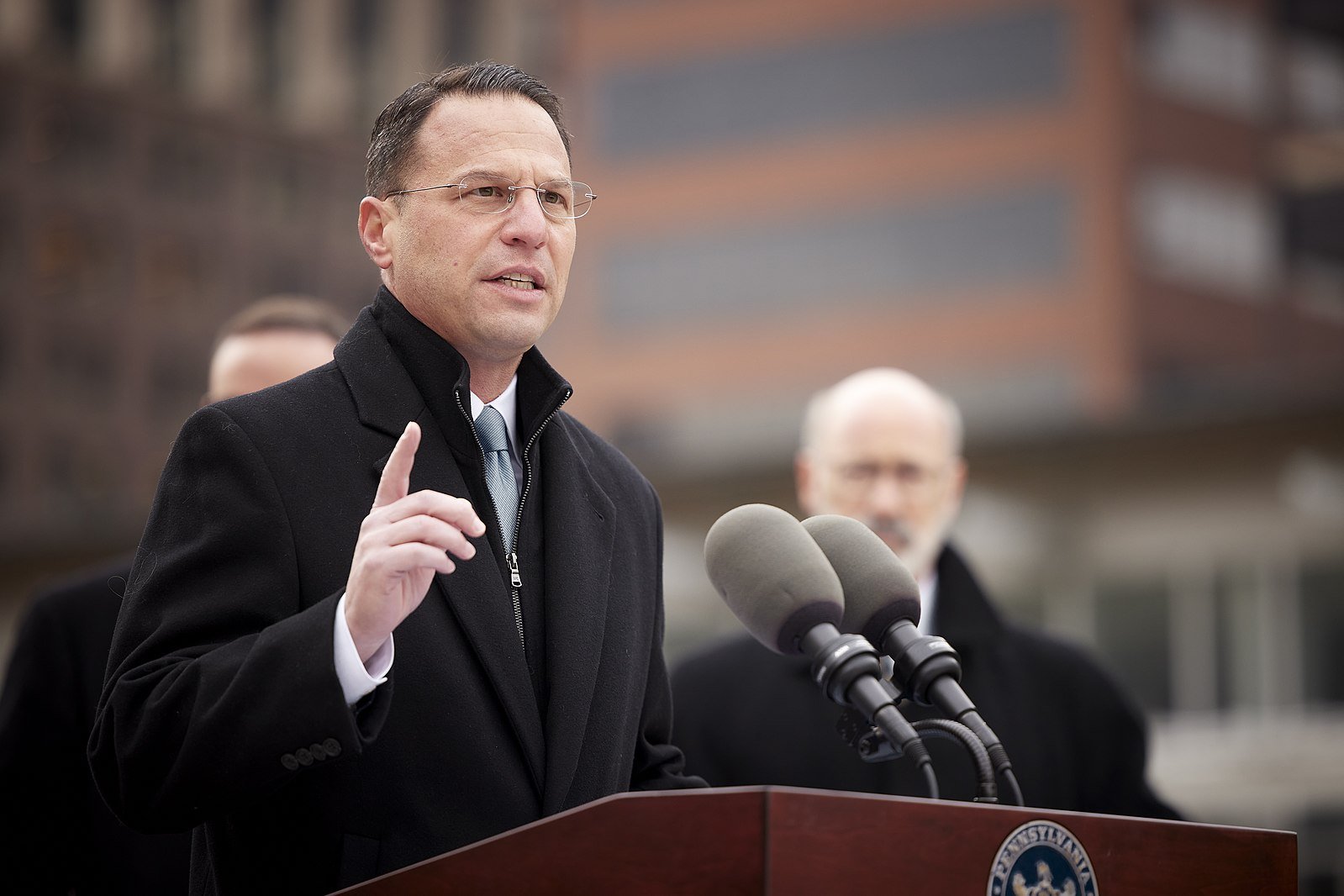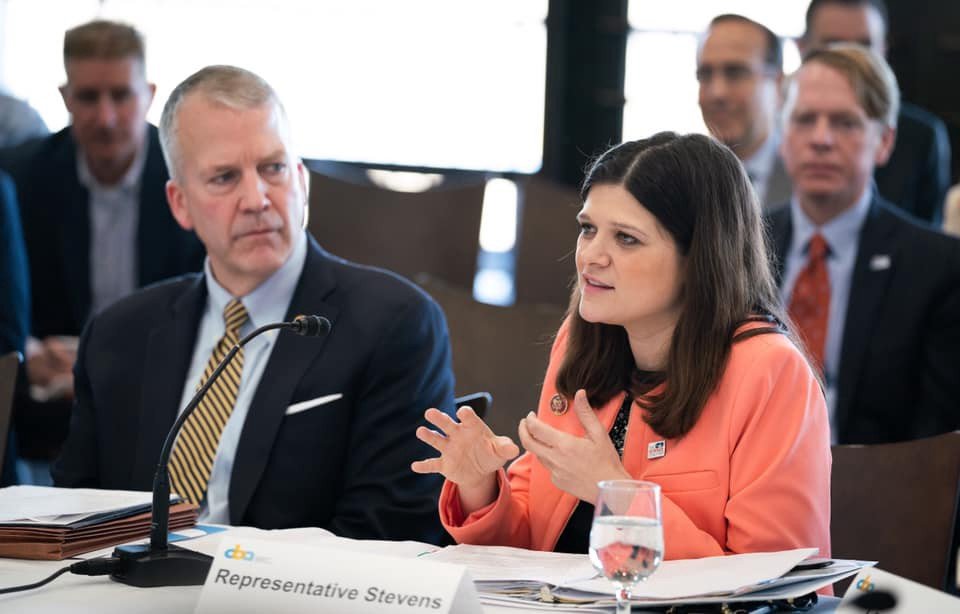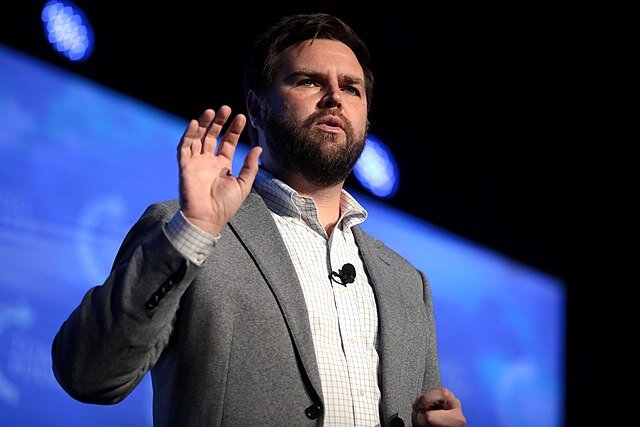The Six Most Competitive Senate Seats That Could Decide 2020
By: Logan Phillips
Date: September 11th
This is Part Five of the Six Part Definitive Guide to the 2020 Senate. Make sure you catch the next part by bookmarking racetothewh.com, or following us on Instagram, Facebook and Twitter
Schedule:
Sunday: The Big Picture - Part One
Monday: The Democratic Pathway to Victory
Tuesday: The Republican Pathway to Victory
Thursday: Where Democrats have the Edge - Part Four
Friday: The True Tossup States - Part Five
Monday: Races with Republicans Out Front - Part Six
1. Iowa:
The Incumbent: Republican Joni Ernst
Joni Ernst burst onto the political stage in 2014 and established herself as one of the stars in the Republican party, winning an open Iowa seat by a wide margin in a year where almost every competitive race bent the Republicans way. The daughter of a farmer and a lover of Harley Motorcycles, Ernst cut an unusual profile for a Senator but a fitting one for Iowa.
Democrats have argued that once the excitement faded, Ernst showed little of the independence in Washington that she promised and represents Mitch McConnell and her donors far better than Iowans back home.
Photo Credit: Max Goldberg from USA / CC BY (https://creativecommons.org/licenses/by/2.0)
The Challenger: Democrat Theresa Greenfield
Like Ernst, Theresa Greenfield grew up in a small town in rural Iowa and spent much of her childhood working on her dad’s farm. At just 24 years old, Greenfield’s life was turned upside down when her husband, Rod, died in a tragic workplace accident. She was left a single mother with a 13-month old child, and with another baby on the way. As a working mom, Greenfield paid her own way through community college and started her own small business.
Even before the coronavirus exploded, Greenfield made health care the central issue of her campaign, along with fighting corruption in politics.
The Strategy:
The Democrat Party made an aggressive and bold decision to invest early in Iowa starting in late 2019 when most pundits thought Iowa wouldn’t be competitive, and the gamble paid off. They were able to establish Greenfield’s profile for months without any attack ads by Republicans, and successfully attacked Ernst record. One of the focal points was that Ernst promised she would fight big deficits in Washington, but she broke her promise by voting for a Trump Tax bill that increased it by trillions.
One more thing to keep an eye on - Democrats bottomed out in Iowa back in 2016 primarily because they had such an abysmal performance in the rural parts of the state. The party is betting that a candidate from Rural Iowa can do better, and our hoping to pick up Iowans facing significant economic challenges from a combination of the trade war and historic floods driven by climate change.
Senate Forecast
Explore the Senate Forecast, updated daily with new polls, to see which party is the favorite to take the majority.
The State of the Race:
Chance of Winning: Joni Ernst (R) 59.9%, Theresa Greenfield (D) 40.1%
Polling: Ernst +1.0%
Ernst: 47.1%, Greenfield: 46.1%
Favorability Rating: Greenfield +15.7%, Ernst -2.2%
Greenfield: 39% Favorable, 23% Unfavorable
Ernst: 43% Favorable, 45% Unfavorable
Fundraising: Greenfield 54%, Ernst 46%
Greenfield $10.5 M, Ernst $8.5 M
Partisan Lean: +8.2% Republican
Impact on Senate Majority:
When Democrats win the Seat:
Democrats Take the Senate: 92%
Republicans Take the Senate: 4%
Tie (50 Seats Each): 4%
When Republicans win the Seat:
Democrats Take the Senate: 44%
Republicans Take the Senate: 42%
Tie (50 Seats Each): 14%
2. Montana - The Showdown of the Steves
The Incumbent: Republican Senator Steve Daines
Steve Daines first big foray into politics was in 2007, when he became the Montana state chairmen for then-Governor Mike Huckabee’s presidential campaign. He worked for 13 years at Proctor and Gamble, became a U.S. Rep in 2012, and has served in the Senate since winning in 2014.
Daines is the first Republican Senator to hold office in Montana in over a century.
Photo Credit: WINSLOW STUDIO / CC BY-SA 3.0 US (https://creativecommons.org/licenses/by-sa/3.0/us/deed.en)
The Challenger: Democrat Governor Steve Bullock
Steve Bullock is a popular two term Governor known for being a moderate bipartisan dealmaker and has been widely praised for his effective response to the Coronavirus, especially compared to neighboring states like Idaho. He worked with Republicans in the State Legislature to achieve major victories, including the expansion of Medicaid and new requirements for corporations to disclose their campaign spending 90 days out from Election Day.
Bullock was the only Democrat who had a real shot of winning in the Big Sky State. Despite pleas from the Democratic party, Bullock was more interested in running for President. When that bid went south, he seemed at peace with riding out his last term as Governor and become a private citizen in January. However, he changed his mind the last week before the deadline to register as a candidate.
Photo Credit: Gage Skidmore from Peoria, AZ, United States of America / CC BY-SA (https://creativecommons.org/licenses/by-sa/2.0)
The Strategy:
Steve Daines is trying to nationalize this race and has consistently emphasized his close relationship with Donald Trump. In Presidential Politics, Montana is a red state, so the more voters choose their candidate on a partisan basis, the better off Daines is.
In recent weeks, Daines has emphasized his environmental record after cosponsoring a successful bill that fully funds the previously chronically underfunded Land and Water Conservation Fund. Daines can rightfully point to this as an accomplishment- but resting his campaign bid on an environmental platform might be an overreach given he still rejects the scientific consensus on climate change.
As the nation remains entrenched in the struggle against the pandemic, this year is arguably the single most important year of Steve Bullock’s tenure as governor. So far, Montanans have been quite positive about his leadership. If the election on Montana shapes up to be a referendum on the coronavirus, then Bullock has the inside track to victory.
Both parties began an advertising blitz campaign, with a research study claiming that between July 15th and August 9th, Montana ran over 40,000 ads, more than any other state. We can only wait to see if the ads will have an effect on polling in the upcoming weeks
The State of the Race:
Chance of Winning: Daines (R) 67.6%, Bullock (D) 32.4%
Polling: Daines +2.4%
Daines: 48.5%, Bullock: 46.1%
Favorability Rating: Bullock +13.5%, Daines +1.6%
Bullock: 52% Favorable, 39% Unfavorable
Daines: 45% Favorable, 44% Unfavorable
Fundraising: Bullock 53%, Daines 47%
Bullock $10.3 M, Daines $9.1 M
Partisan Lean: +18.1% Republican
Impact on Senate Majority:
When Democrats win the Seat:
Democrats Take the Senate: 92%
Republicans Take the Senate: 4%
Tie (50 Seats Each): 4%
When Republicans win the Seat:
Democrats Take the Senate: 50%
Republicans Take the Senate: 38%
Tie (50 Seats Each): 13%
3. Kansas - Can a Doctor win in a Deep Red State?
The Republican: Representative Roger Marshall
Photo Credit: Frederick Schilling / Public domain
Roger Marshall is a U.S. Representative, whose district covers the North and Western half of the state. Prior to running for office, Marshall was a obstetrician gynecologist.
Marshall had a contentious primary with Republican Kris Kobach, the former Secretary of State for Kansas and a strong ally of President Trump. Kobach lost the Kansas Governor’s race just two years ago, and has remarkably low approval rating with non Republicans in the State. Mitch McConnell and the Republican party became extraordinarily involved in the primary to deny Kobach victory in an effort they called "Operation Scorched Prairie"
Marshall is an ardent opponent of expanding Medicaid, and supports repealing the Affordable Care Act.
The Democrat: State Senator Barbara Bollier
Barbara Bollier cuts the right profile for a Kansas Democrat in 2020. She’s a former doctor and health care expert - and even before the coronavirus epidemic exploded in America, she was making the case that her expertise will be invaluable, in a Congress that has certainly had its struggles with health care policy over the last four years.
The conventional wisdom is that this race stopped being competitive, once the deeply unpopular Kris Kobach lost in the primary. We disagree - Bollier’s dominance in fundraising, the competitive head to head polling, and the unique dynamic of Kansas politics in 2020 give Bollier a shot at an upset.
For what it’s worth, this is hardly the first time this cycle Race to the WH disagreed with the conventional wisdom. Our forecast found that Democrat Jamie Harrison posed a credible threat by the first week of June in South Carolina, and that Democrats were contenders in Alaska even in January. Both of these were positions far outside the norm, but are now fairly conventional takes.
The Strategy
In Kansas, Republicans are still suffering from the fallout of Governor Sam Brownback’s tenure. Brownback won the governorship on a platform promising massive tax cuts for Kansas - which he delivered in his first term. However, the cuts failed to spur growth, and Kansas was left with a severe revenue shortage that threatened to devastate school and health care funding. The crisis caused Brownback's disapproval to surge to 66%, and his own party ended up turning against him, voting to terminate his tax cuts over his veto.
Democrats took advantage of the Brownback blowback, and Laura Kelly beat Kris Kobach to become Governor by 5% in one of the most impressive wins of 2018. She ran a moderate campaign laser focused on expanding medicaid. Health care policy cuts across party lines, and Kansas voters are strongly in favor of expanding Medicaid.
Bollier clearly has taken a page out of Kelly's playbook, and is using the same strategy aimed at winning some of the moderate Republicans that from time to time vote for Democrats. Marshall has countered by saying Bollier is a radical supporting socialized medicine. On this issue, Bollier has the clear advantage.
Marshall also might be vulnerable on the issue of the Coronavirus - Bollier has pounded him for repeatedly flaunting health ordinances by hosting packed events inside without any mask. She’s also hit him for providing misleading information on the pandemic, and in one case Facebook took the extraordinary step of taking one of his post down for spreading misinformation.
Nonetheless, Kansas is a very red state - and even under perfect conditions it will be very challenging for Bollier to finish ahead here. To win, Bollier will need to localize this race and make it about the individuals not the national party.
The State of the Race:
Chance of Winning: Marshall (R) 59.5%, Bollier (D) 40.5%
Polling: Marshall +1.9%
Marshall: 44.8%, Bollier: 42.9%
Favorability Rating: Bollier +0.3%, Ernst -0.9%
Bollier: 31% Favorable, 30% Unfavorable
Marshall: 37% Favorable, 38% Unfavorable
Fundraising: Bollier 80%, Marshall 20%
Bollier $6.9 M, Marshall $1.7 M
Partisan Lean: +21.0% Republican
Impact on Senate Majority:
When Democrats win the Seat:
Democrats Take the Senate: 87%
Republicans Take the Senate: 7%
Tie (50 Seats Each): 56%
When Republicans win the Seat:
Democrats Take the Senate: 47%
Republicans Take the Senate: 40%
Tie (50 Seats Each): 13%
4. Alaska
The Incumbent: Republican Dan Sullivan
Photo Credit: United States Senate - Office of Dan Sullivan / Public domain
Dan Sullivan is a former Marine who clerked for the United States Court of Appeals. He served in several roles in the Bush Administration, including at the National Security Council, but left to run for Alaska Attorney General.
Sullivan was narrowly elected to the Senate in 2014, beating Democrat incumbent Mark Begich by two percent. That’s a concerning sign for Sullivan, given the sheer strength of the national environment for Republicans that year. 2020 could be similarly strong for Democrats, and Alaska is 7% more Democratic leaning in 2020 then it was in 2014.
The Challenger: Independent Dr. Al Gross (will Caucus with Democrats)
Dr. All Gross is an orthopedic surgeon who paid his own way through medical school while working as a commercial fisherman.
Gross has never run for political office before - but Democrats are hoping that this will give him an advantage at a time when voters tend to be skeptical of career politicians.
Gross is running as an independent, who will caucus with Democrats, and promises not to vote the party line. This might be an asset in Alaska, one of the most politically unconventional states, with a penchant for politicians with an independent style.
Technically he wouldn’t be the first Alaskan Senator to win running outside the party lines. Alaska Senator Lisa Murkowski accomplished the feat after losing the Republican primary in 2010 to a Tea Party. Sarah Palin backed candidate. Murkowski won by getting voters to write her name in on the ballot. It was only the second successful write-in campaign in Senate history.
The Strategy
The focal point of Al Gross’s contrast with Sullivan is that he is an independent leader who won’t vote down the party line - where Sullivan has voted with his party 97% of the time.
Gross is banking on the notion that Alaskans may prefer Republicans, but above all else they want politicians that have the guts and independence to do what’s right
Dan Sullivan styles himself in the model of a compassionate conservative. He’s emphasizing his work combating domestic violence from his time as Attorney General, and his work on cleaning up oceans.
The environment could be a key issue in Alaska, and both candidates are trying to turn it to their advantage. Few states in the nation have been hit harder by climate change and rising tides have already had devastating impacts on remote Alaskan villages. The acidification of the ocean is a potentially lethal threat to the state’s fishing industry. Sullivan has worked with Democratic Senators in an effort to clean up oceans and protect wildlife.
However, while he acknowledges that climate change exist, Sullivan still questions the scientific consensus that human beings are its primary cause, and has not been supportive of efforts to lower emissions. Dr. Gross says he’s not going nearly far enough. Gross said in an interview with Alaskans Know Climate Change, “I’ve seen dramatic changes in the state since I was a kid. Alaska is ground zero… We need to do what we can to protect our economy and our jobs… It’s putting our fisheries at risk and a lot of cultures and housing developments at risk.”
The State of the Race:
Chance of Winning: Sullivan (R) 49.1%, Gross (D) 50.9%
Polling: Sullivan +1.9%
Sullivan: 43.8%, Gross: 41.9%
Favorability Rating: Gross +8.5%, Sullivan -2.5%
Gross: 34% Favorable, 25% Unfavorable
Sullivan: 39% Favorable, 42% Unfavorable
Fundraising: Sullivan 55%, Gross 45%
Bollier $5.2 M, Marshall $4.3 M
Partisan Lean: +15.3.0% Republican
Impact on Senate Majority:
When Democrats win the Seat:
Democrats Take the Senate: 83%
Republicans Take the Senate: 10%
Tie (50 Seats Each): 7%
When Republicans win the Seat:
Democrats Take the Senate: 44%
Republicans Take the Senate: 43%
Tie (50 Seats Each): 13%
5. Georgia
The Incumbent: Republican Senator David Perdue
Before launching his bid for the Georgia Senate seat in 2014, David Perdue had a successful career as a top executive, serving as the CEO of Reebok and Dollar General.
True to the 2014 and 2016 Republican playbook, he turned his inexperience in politics, and outsider status, into a strength and made it the cornerstone of his campaign.
The Challenger: Democrat Jon Ossoff
You might recognize Jon Ossoff’s name from his race for the first special election of the Trump Era in 2017. His campaign got wall to wall coverage, and he barely missed victory in a traditionally red Georgia suburb, while breaking records for the most money ever raised for a congressional seat
Ossoff is going to need every bit of that fundraising prowess to win this race. The race is moving in his direction, and in the last month he cut his deficit from four to just two percent.
The Strategy:
Democrats have had a decisive edge on the issue of healthcare in even the most conservative states in the country – and David Perdue clearly senses this is a weakness. He launched an advertisement a few weeks ago where he said that health insurance should always cover preexisting conditions.
As comforting as this may be to Georgian residents, his record is not nearly as unequivocal as his recent statement sounds – Perdue has voted to repeal Obamacare three times, which if successful would have put Americans with preexisting conditions in freefall. He still hasn’t rescinded his support for a GOP lawsuit that would gut Obamacare protections.
Clearly, the Perdue campaign has seen enough Democrat campaigns effectively use this issue as a cudgel against Republicans, and this was an effort to inoculate his campaign in case any attacks are incoming.
The State of the Race:
Chance of Winning: David Perdue (R) 36.7%, Jon Ossoff (D) 63.3%
Polling: Perdue +1.8%
Perdue: 45.7%, Ossoff: 43.9%
Favorability Rating: Ossoff +5.5%, Perdue -1.6%
Ossoff: 32% Favorable, 27% Unfavorable
Perdue: 37% Favorable, 39% Unfavorable
Fundraising: Perdue 53%, Gross 47%
Perdue $6.2 M, Ossoff $6.9 M
Partisan Lean: +15.3% Republican
Impact on Senate Majority:
When Democrats win the Seat:
Democrats Take the Senate: 94%
Republicans Take the Senate: 2.6%
Tie (50 Seats Each): 3.5%
When Republicans win the Seat:
Democrats Take the Senate: 46%
Republicans Take the Senate: 41%
Tie (50 Seats Each): 14%
6. Georgia - Special
This is a Race like No Other in 2020:
Welcome to the single most confusing and hard to predict race in 2020. After longtime Senator Johnny Isakson announced his early retirement as a result of his struggle with Parkinson’s, a second senate seat opened up in the Peach State.
There are two rounds of voting - the first will take place on Election Day in November. If no candidate is able to successfully win 50% of the vote, then the top two vote getters will move on to a special election in January.
Here’s the kicker - party doesn’t matter at all here. If two Republicans or Democrats finish in the top two, then the missing party will be locked out of the Senate race. Right now that’s much more likely to happen to Democrats, but we think it’s unlikely.
This race has so many moving parts that it’s hard to follow without the proper graphics. Race to the WH just launched a Georgia Senate Special Election page that will be updated daily with any new information all election cycle long - and will break down the race at every stage - from the free for all on election day, to every potential head to head matchup in January.
The Incumbent: Republican Senator Kelly Loeffler
Loeffler was appointed by Governor Brian Kemp to fill Senator Isakson’s Seat despite pressure from Donald Trump to select Representative Doug Collins. Loeffler is an independently wealthy businesswomen who co-owns the WNBA Atlanta Dream.
She was mostly unknown to Georgians until news broke that she and her husband sold over ten million dollars of stock immediately following a classified briefing on the immense potency of the coronavirus. It certainly didn’t help matters that Mr. Loeffler is the President of the New York Stock Exchange.
While Loeffler claims she did nothing wrong, Georgians were outraged. Unfortunately for the sitting Senator, this was her introduction to most people in the state, she’s now quite unpopular in Georgia, especially outside of the Republican party.
Challenger 1: Republican U.S. Rep Doug Collins
Doug Collins clearly never got over the snub of being passed over for the nomination, and he’s running to take the seat from Loeffler. He used to have pretty decisive edge, but months of attacks from the mostly self funded Loeffler have begun to take its toll on Collins.
Collins is a partisan firebrand who got right in the middle of the impeachment fight. That effort won him Trump’s favor and probably will help him consolidate Republican support, but probably won’t endear him to swing voters in the second round of the election.
Challenger 2: Democrat Ralph Warnock
Photo Credit:Frederick Schilling / Public domain
Ralph Warnock grew up in the Savannah as one of 12 children, but went on to not only graduate college, but get his PHD in Divinity, and become the Pastor at Ebenezer Baptist Church in Atlanta. It’s the very same church that Martin Luther King served at, and gave several of the most important and impassioned sermons in American history.
Warnock has long been engaged on political and justice issues. He gave the Benediction for President Obama’s Second Inauguration, and chaired the New Georgia Project, an effort to register Georgians to vote.
Warnock would be the first African American Senator in Georgia’s history
Challenger 3: Democrat Matt Lieberman
Matt Lieberman is the nephew of former Connecticut Senator, and Vice Presidential Candidate, Joe Lieberman. Matt is the former principal of a Jewish Day School.
This is Lieberman’s first time running for office, and at first it seemed like a quixotic bid after Warnock entered the race as the Democratic favorite, and won endorsements from Stacey Abrams, and high profile Democrats from across the state and country. However, Lieberman held steady with Warnock for several months, which began to make Democrats nervous that the candidates could end up blocking each other from moving off to the run-off.
However, a recent poll showed Lieberman falling 9% behind Warnock, who has raised considerably more money.
The Strategy
Collins and Loeffler are in a fierce battle for Republican leaning voters, and have launched missive after missive at each other’s campaigns. They have both taken very extreme positions against Black Lives Matters to show their commitment to the base. Collins expressed outrage after an Atlanta District Attorney decided to bring charges against a police officer after he killed a civilian and black man, Rayshard Brooks.
While Brooks stole the officers taser during the struggle, he shot him after the taser had used both its two shots of ammo and could not be fired again. Furthermore, one officer kicked him and another stood on his shoulders after he was shot and dying on the ground. Collins has decried the charges as outrageous, and asked the FBI to intervene and prevent the cop’s prosecution.
Meanwhile, Loeffler wrote a public letter to the WNBA expressing disappointment in the league’s endorsement of Black Lives Matters. The letter contained wild conspiracy theories about a movement aimed at achieving equal rights - claiming that somehow its true purpose was to advocate for communism and attack the nuclear family. Clearly these sideshow causes were not what compelled Americans to take to the streets and protest.
Collins and Loeffler campaigns clearly indicate that they think Republicans in Georgia are looking for someone to fight back against efforts for Black Americans to achieve civil rights. We’re not going to play around here and avoid the truth. This is a direct and clear appeal to racist sentiment, and frankly Georgians should be insulted that these candidates have such a low opinion of them. Perhaps it will help them edge into the runoff. However, African Americans and voters in the suburbs will be reminded of their actions from November to January.
Democrats chances have risen in the Senate Forecast because Loeffler has a truly horrible approval rating (-17%), and she is beginning to look like the favorite to move on to the next round. We think she would be an underdog in a one on one election. However, it’s possible public opinion of her has improved - there hasn’t been an poll with approval ratings since late July.
The State of the Race:
All Candidates:
Chance of Winning: David Perdue (R) 36.7%, Jon Ossoff (D) 63.3%
Polling First Round: Loeffler (R) +3.1%
Loeffler 24%, Collins 20.9%, Warnock 15.4, Lieberman 12.4% Tarver 4.9%,
Favorability Rating: Collins+2.0%, Warnock -1.4%, Loeffler -16.5%
Collins: 35% Favorable, 33% Unfavorable
Loeffler: 32% Favorable, 38% Unfavorable
Warnock: 32% Favorable, 33% Unfavorable
Lieberman and Tarnock - None
Fundraising: Warnock 42%, Collins 24%, Loeffler 20%, Lieberman 13%, Tarver 1%
Warnock: $3.7 M, Collins $2.1 M, Loeffler $1.8 M, Lieberman $1.2M Tarver $0.1M
Partisan Lean: +9.2% Republican
Round 2: Two Most Likely Matchups
1. Warnock v. Collins (35% of the time)
Chance of Winning: Doug Collins (R) 67.0%, Ralph Warnock (D) 33.0%
Polling: Collins +2.3%
Collins: 43.7%, Warnock: 41.4%
Favorability Rating: Collins +2.0%, Warnock -1.4%
Fundraising: Warnock 64%, Collins 36%
2. Warnock v. Loeffler (31% of the time)
Chance of Winning: Ralph Warnock (D) 75.8%, Kelly Loeffler (R) 24.2%,
Polling: Warnock +3.9%
Warnock: 42.9%, Loeffler: 39.0%
Favorability Rating: Warnock -1.4%, Loeffler -16.5%
Fundraising: Warnock 67%, Loeffler 33%
Impact on Senate Majority:
When Democrats win the Seat:
Democrats Take the Senate: 86%
Republicans Take the Senate: 8%
Tie (50 Seats Each): 6%
When Republicans win the Seat:
Democrats Take the Senate: 43%
Republicans Take the Senate: 44%
Tie (50 Seats Each): 13%









